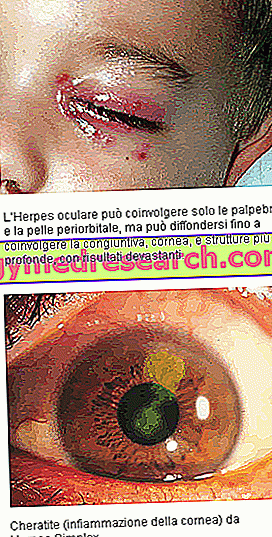Related articles: Heart failure
Definition
Heart failure is a condition in which the heart is unable to pump blood or fill up at a rate that is adequate to the metabolic needs of the tissues. It follows:
- an accumulation of blood upstream of the ventricle, with congestion of veins and organs and accumulation of fluid (edema), especially at the level of the lungs in case of left heart failure, or of the liver (hepatomegaly) and of the lower limbs in case of heart failure right;
- a decrease in the flow of arterial blood from the heart to the tissues (hypoperfusion)
Heart failure is common in various situations that damage, overload or reduce the efficiency of the heart muscle. In most cases it is a chronic process that slowly evolves supported by hypertension. There are also common cases of heart failure caused by dysfunctions of the heart valves, arrhythmias, prolonged alcohol abuse, severe anemia, thrombosis or atherosclerosis with aortic stenosis. A major role in the etiology of heart failure is played by previous myocardial infarctions.
Shortness of breath (dyspnea), fatigability and ankle swelling (peripheral edema) are the clinical symptoms characteristic of early heart failure; unfortunately, these symptoms are very little specific, because they are also common to other diseases. Other symptoms, such as orthopnea or jugular congestion (the main vein of the neck appears dilated), are more specific, but unfortunately tend to occur only in advanced stages of the disease.
Most common symptoms and signs *
- Respiratory acidosis
- Adynamia
- anasarca
- Anorexia
- Anuria
- Arrhythmia
- Ascites
- asphyxiation
- Muscular atrophy
- Weight gain
- Swollen arms
- Cyanosis
- Coma
- Hepatic congestion
- Dyspnoea
- Abdominal distention
- Distension of the neck veins
- Edema
- hemoptysis
- Hepatomegaly
- extrasystoles
- Shortness of breath
- Atrial fibrillation
- Ventricular fibrillation
- Atrial flutter
- Tingling in the legs
- Swollen legs
- hyperkalaemia
- hyperpnea
- Portal hypertension
- Hypertrophy of the accessory muscles of respiration
- Hyperventilation
- Hyponatremia
- Hypoxia
- Hypotension
- Orthostatic hypotension
- Muscular hypotrophy
- Swollen lips
- Lethargy
- marasma
- Functional Meteorism
- myoclonus
- nocturia
- orthopnea
- Pallor
- Swollen and tired feet
- Paradoxical pulse
- presyncope
- Proteinuria
- itch
- Leg itch
- Itching in the hands
- Wheezing breath
- Reduction of respiratory noise
- Growth delay
- Blood in Saliva
- Foam in urine
- Sense of suffocation
- Drowsiness
- Confusional state
- Tachycardia
- tachypnoea
- Cough
- Uremia
- Pleural effusion
Further indications
The therapy of heart failure consists in resting, with a low-salt diet and taking drugs that can support or regulate the activity of the heart (digoxin, beta-blockers in small doses) and favor the disposal of edema and pressure reduction arterial (eg diuretics and ACE inhibitors). In the presence of structural anomalies, such as faulty valves, surgical repair or replacement is used instead.



